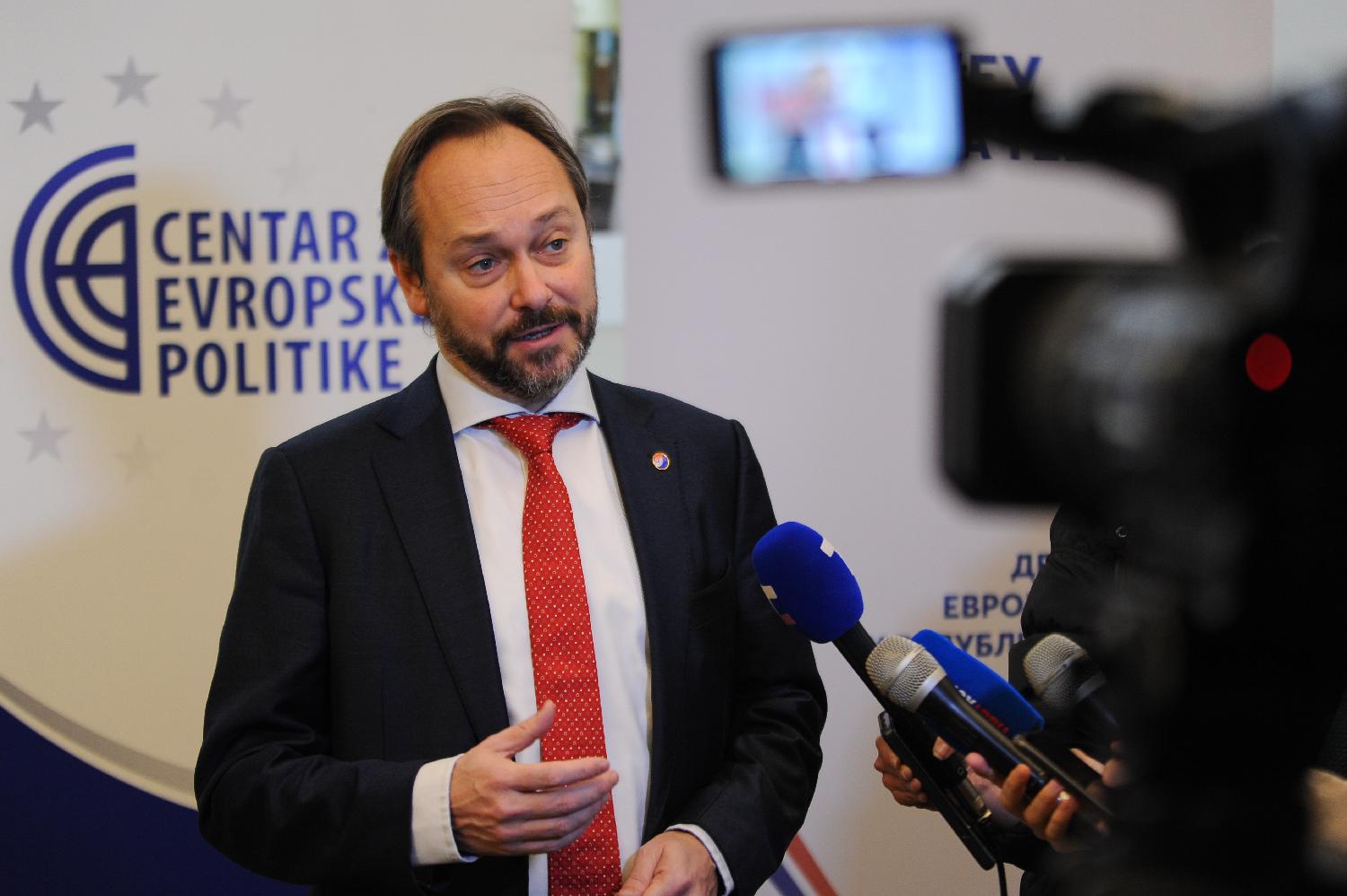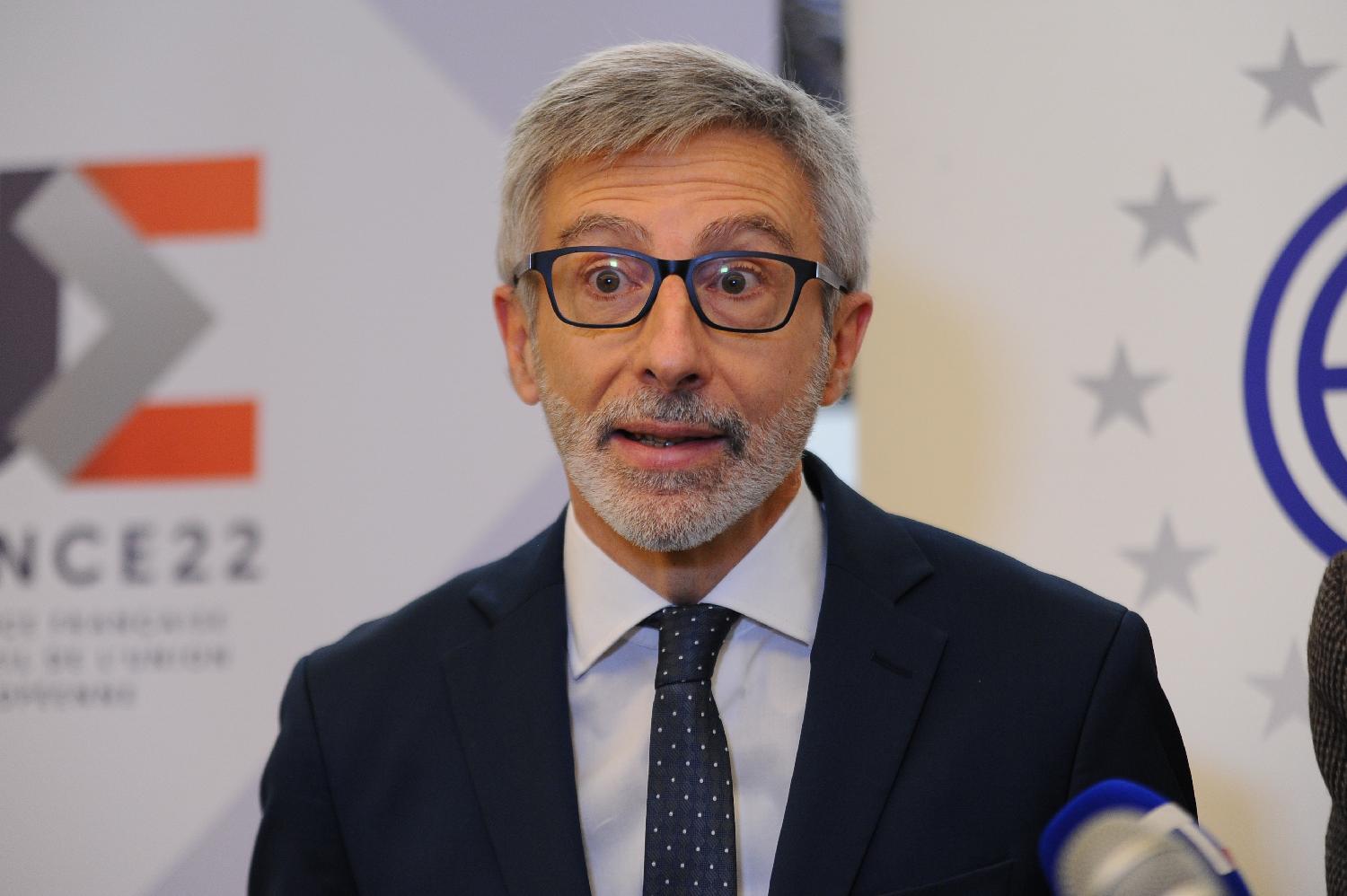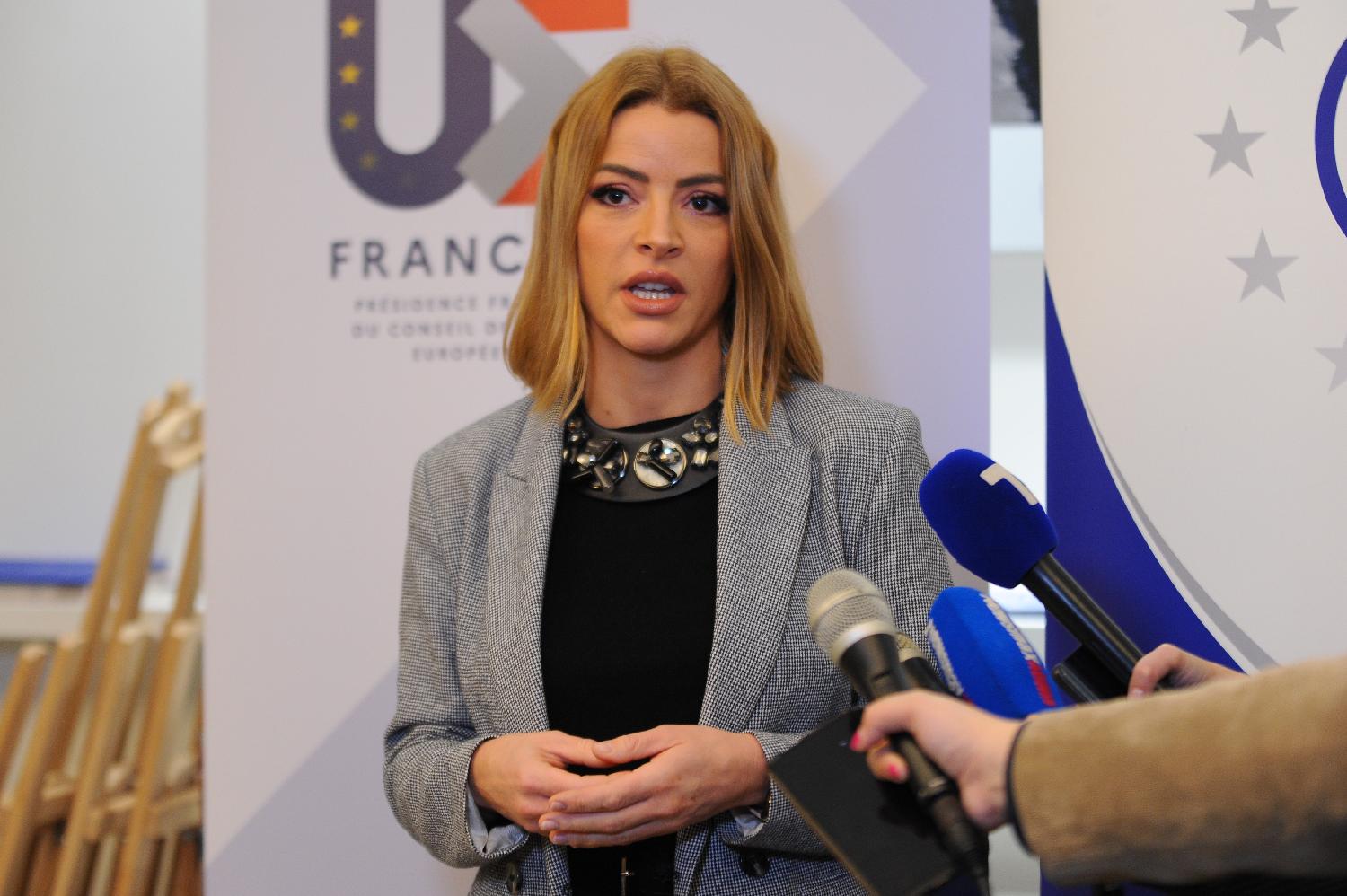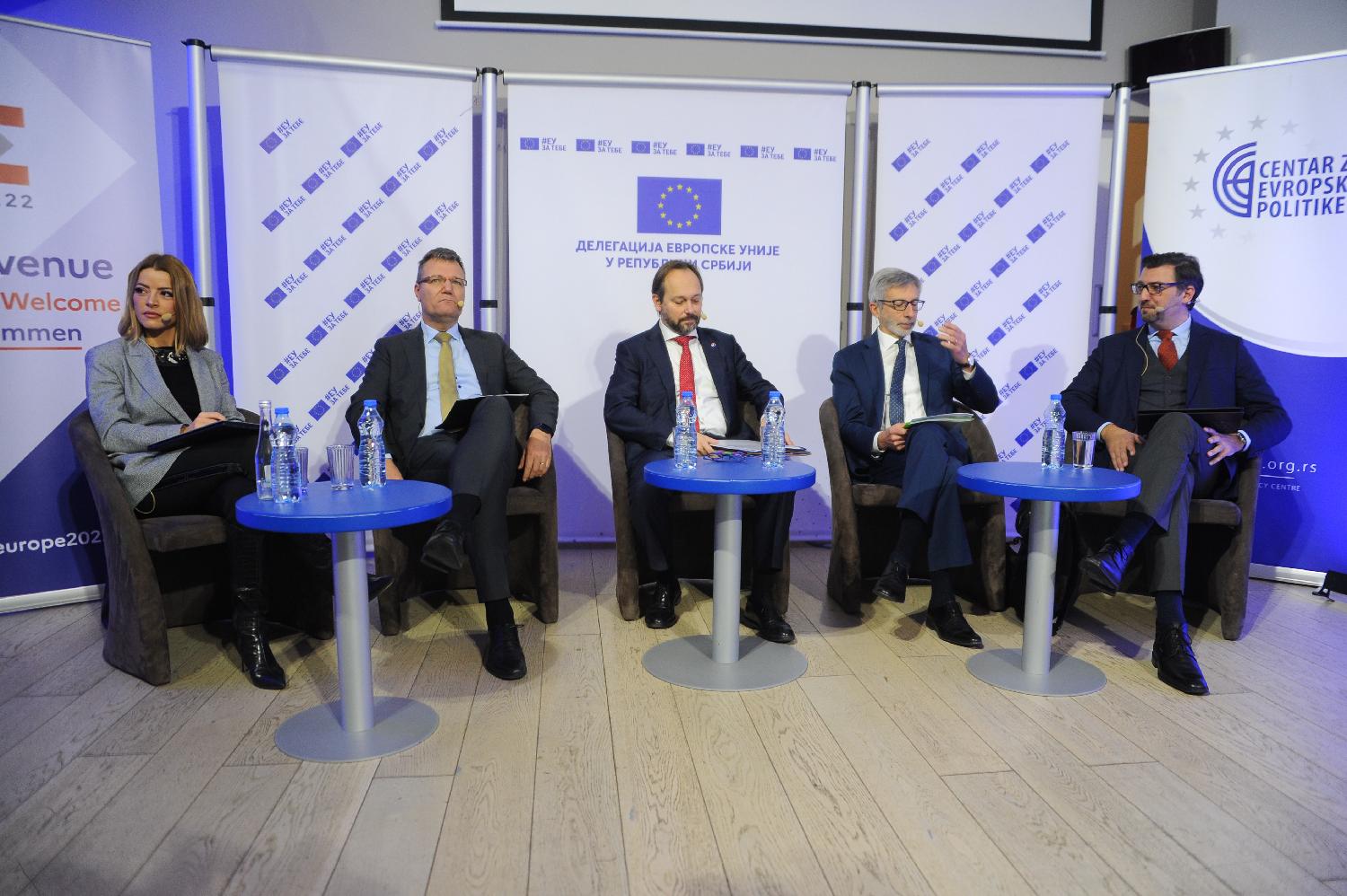“Talking about the future of Europe in Serbia is important for two reasons. Firstly, to quote the French ambassador: Serbia will be part of the European Union. And secondly, to raise awareness of the European project as constantly on the move, rather than being static, which is an aggravating circumstance. The European Union of the in which was joined by members during the 1970s, is not the same as today’s EU. It is important to understand that you are part of something that has common values, to identify as a part, and to contribute to the whole,” said EU Ambassador to Serbia Emanuele Giaufret during the conference “From Slovenia to France – Where there’s a will, there’s a way.”
The conference served to announce the French presidency of the Council of the European Union, stating from 1 January. Slovenia has presided over the Council over the past six months, and for the second time; the first presidency was in 2008.

Apart from Ambassador Giaufret, Damjan Bergant, the Slovenian Ambassador to Serbia, Pierre Koshar, the French Ambassador to Serbia, Milena Lazarević, Programme Director of the Center for European Policies (CEP), and Srdjan Majstorović, President of the CEP Steering Board, also spoke at the conference. Mihailo Papazoglu, the former Serbian Ambassador to Canada, also joined the discussion.
The Slovenian presidency of the EU Council was the last in the “trio” of presidencies that tackled the difficult task of fighting the Covid 19 pandemic. To this end, Slovenia focused its efforts on strengthening the EU’s resilience and recovery, with the aim of getting the EU back on its feet and paving the way for the development of a health union. Despite having its hands full tackling the health crisis, Slovenia still managed to put a significant focus on enlargement, especially by organizing the EU-Western Balkans summit. for the development of the health union. Despite having its hands full solving the health crisis, Slovenia still managed to put a significant focus on enlargement, especially by organizing the EU-Western Balkans summit.
Meanwhile, France, as a founding member of the EU, faces high expectations, especially since it’s the next in turn to continue the recovery, all the while chairing the Conference on the Future of Europe, which is expected to draw conclusions that would set the stage for the future. On top of that, given that France adopted its national strategy for the Western Balkans in 2019, many hope that the country will find room to give priority to enlargement during its term.

Ambassador Giaufret also made a reference to the crisis.
“Unfortunately, the crisis is not over yet, but we are in a better place than before,” he said, adding that the European Union offered great support during the pandemic, primarily through vaccine exports and economic assistance.
“One of the key aspects is to be aware that we now must do things together. Solidarity is key,” Giaufret.
Speaking about the presidency of the EU Council, Ambassador Giaufret pointed to the Brdo Summit as one of Slovenia’s greatest successes, dubbing the opening of Cluster 4 as important achievement, “just before the semester ended.”
To remind, Tuesday saw the opening of four chapters: Chapter 14 (Transport Policy), Chapter 15 (Energy), Chapter 21 (Trans-European Networks) and Chapter 27 (Environment), bringing the number of chapters opened so far to 22.

Priorities and goals of the Slovenian presidency, under the slogan “Together. Resistant. Europe” include strengthening the resilience, recovery and strategic autonomy of the Union, a conversation about the future of Europe, reinforcing European values with special emphasis on the rule of law, followed by strengthening of transatlantic relations and the continuation of the EU enlargement process.
The Minister of Foreign Affairs of Slovenia, Anže Logar, once said that Slovenia will focus on the socio-economic recovery of the Western Balkans after the pandemic and sustainable development and progress of the region’s countries on the road to the EU, paying special attention to the implementation of the Green Agenda and projects that are consequential to gradual transformation of the countries in the region into sustainable and green economies.
The Ambassador of Slovenia, Damjan Bergant, said:
“You have an important role to play as a presiding country. On the one hand, you have EU institutions, and then you have 27 member states with their own expectations, etc. The main task is coordination. And when it comes to enlargement, we have the countries of the Western Balkans that are want to become members and have different views about it. We have a number of topics as priorities. If I were to list everything we have done, we would be sitting here for four hours straight,” he said, pointing out the EU-WB Summit as one of the biggest successes in the last six months.
French Ambassador Koshar said that challenges remain that should be overcome together, like investments in science, digitalization, etc., along with security as another important aspect.
“France’s position is that Serbia will be a member of the European Union,” Koshar said.

Milena Lazarevic said that “there is no doubt the EU has done its best in the last two years to revive the enlargement process,” noting that before that “the process was sort of in autopilot mode.
“I’d say that the opening of this cluster speaks loudly about the good intentions of the EU members and EU partners; about investing in reforms in Serbia. That is an important message for the citizens of Serbia and its civil society.”
If you missed the live broadcast of the conference, you can find the video on the EU’s Facebook page in Serbia.
COUNCIL OF THE EUROPEAN UNION; COUNCIL OF MINISTERS / COUNCIL OF EUROPEAN UNION / COUNCIL OF THE EUROPEAN UNION / RAT DER EUROPÄISCHEN UNION
The Council of the European Union or the Council of Ministers of the EU is the most important body of the EU, yielding both legislative and executive powers. The EU Council consists of one minister from each member state, depending on the area on the Council’s agenda. The Council is responsible for making decisions to achieve the objectives set by the Treaty, adopting regulations, harmonising the economic policies of the member states, etc.
Photo: Fonet




